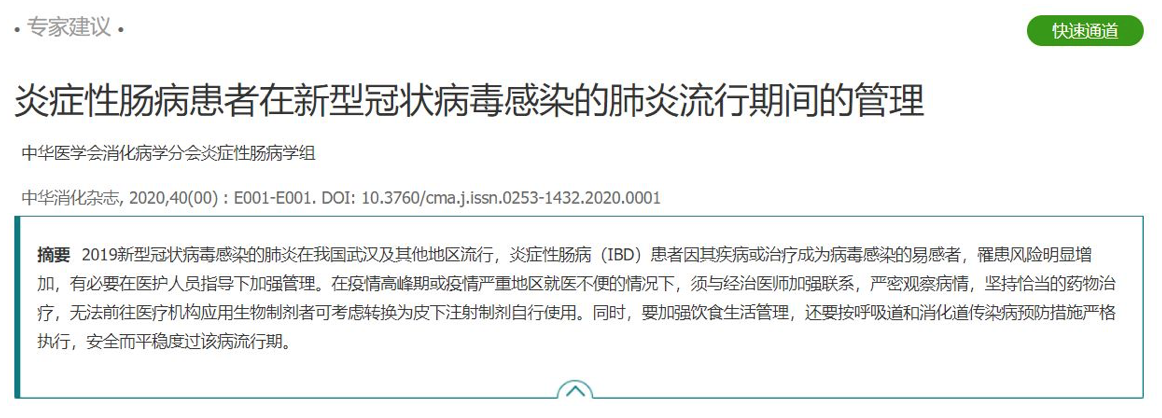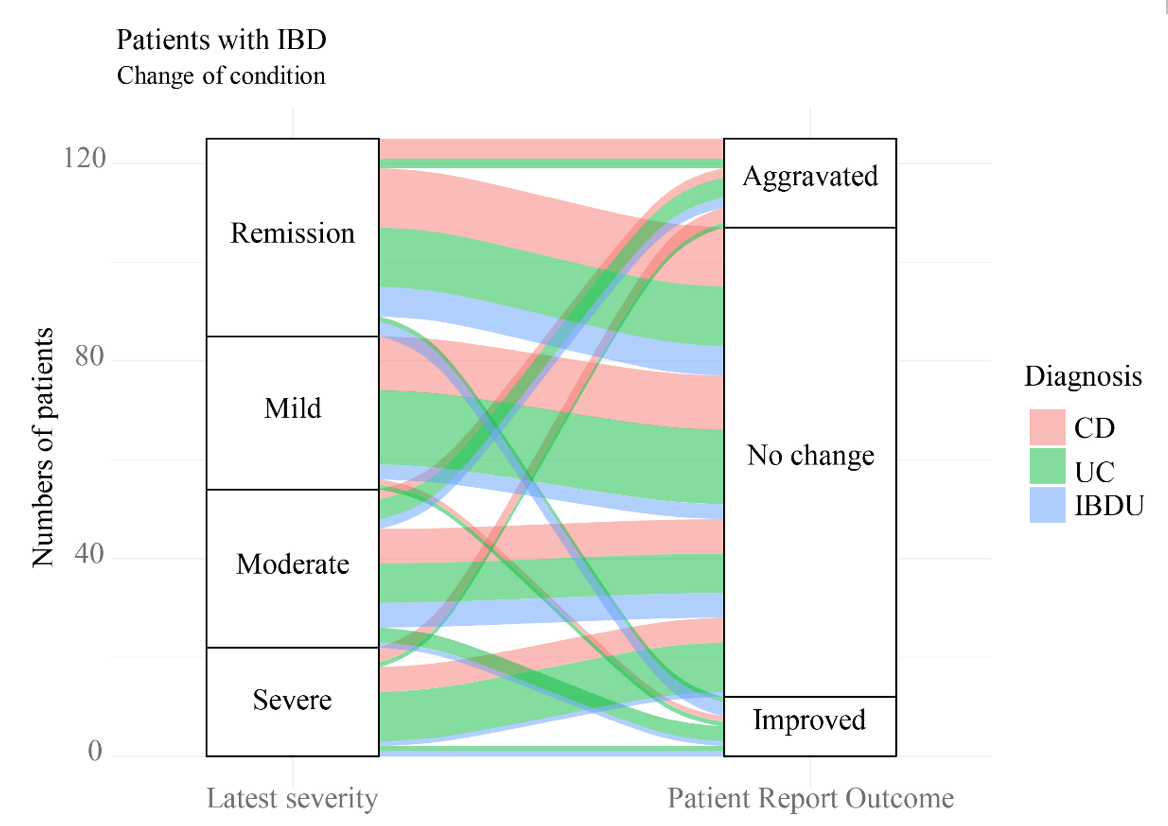Coronavirus disease 2019 (COVID-19) has swept Wuhan and other cities in China since January 2020. It is very challenging for hospitals to respond to the pandemic actively and continue to maintain the management of patients with chronic diseases. Under this situation, the inflammatory bowel disease (IBD) team in the Gastroenterology Department of Peking Union Medical College Hospital carried out a series of explorations and summaries based on the characteristics of pandemic, real clinical condition and needs of patients. Professor Jia-ming Qian and Hong Yang participated and did the actual drafting of writing the Chinese expert consensus “Management of patients with IBD during epidemic of 2019 coronavirus pneumonia” within IBD Group, Chinese Society of Gastroenterology, Chinese Medical Association. The consensus published online in Chinese Journal of Digestion on February 6th, 2020. On March 28th, its follow-up research was published online in the Journal of Crohn’s and Colitis (Impact factor: 7.827).
The consensus focused on the issues of viral susceptibility, active or remission period management and viral prevention in patients with IBD. During the pandemic, the patients with IBD should strengthen the contact with the physicians, observe the condition closely, and adhere to appropriate management. Those who cannot go to the medical institution to apply biological agents may consider switching to subcutaneous injection use. Meanwhile, we must emphasize on the management of dietary life, and strictly implement preventive measures for infectious diseases of the respiratory tract and digestive tract.

Later, PUMCH IBD team adopted new methods of communication for follow up such as mobile communication applications, distance text consultation, hotline and telehealth. In the last two months, we sent out questionnaires to our patients through emails, mobile communication applications and text message to monitor patients' progress. We received 125 effective responses in total. Patients were classified into 4 levels of severity in previous follow up, severe (22, 17.6%), moderate (32, 25.6%), mild (31, 24.8%), and remission (40, 32.0%). Over the period of COVID-19 outbreak, 18 (14.4%) patients reported exacerbation, 12 (9.6%) patients improved, and 95 (76.0%) patients remained unchanged. Eighty-eight (70.4%) patients stated that COVID-19 pandemic impacted their scheduled follow up. Sixty-four (51.2%) patients attended consultation via mobile communication applications, 6 (4.8%) patients received follow up online, 6 (4.8%) patients attended patient information webinar, and 16 (12.8%) patients visited outpatient clinics or emergency departments in non-COVID-19 treating hospitals. Only 1 patient felt his/her medical need had not been met during this special period.
COVID-19 outbreaks in countries with high morbidity of IBD, such as East Asia (Korea and Japan), Europe (Italy, Germany, Spain and France), and North America (US). We hope our experience could provide an alternative of face-to-face consultation for reviewing patients with IBD in above mentioned countries. 1) Mobile communication applications, such as WeChat, is an effective and individualized method of information exchange. This approach can cover fundamental follow-up questions and soothe the panic. 2) Internet-based service such as email and hotline communication may solve some non-urgent medical issues for patients. 3) For general concerns from IBD patients such as diet advice and relaxation techniques, webinar is an effective and efficient source to provide information to patients and primary health practitioners. 4) Timely referral has to be reserved for certain cases.


Compared with the global pandemic condition, the anti-COVID-19 work in China has entered the next stage. With the joint efforts of everyone, the management of chronic diseases will also be back on track. This experience summary may provide a reference for disease management of similar patients in other countries.
Writer: Xiao-yin Bai, Hong Yang, Ming-yan Chen
Editor: Tan-ping Fu
Photo: Gastroenterology Department, PUMCH
